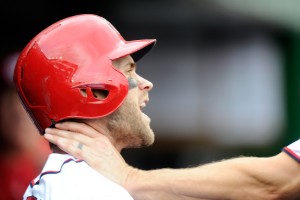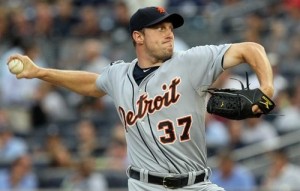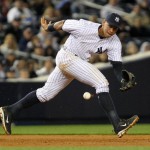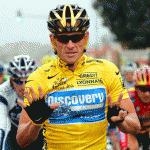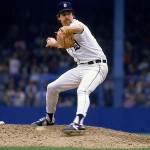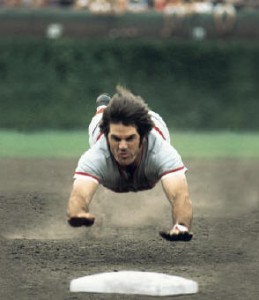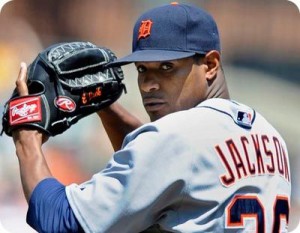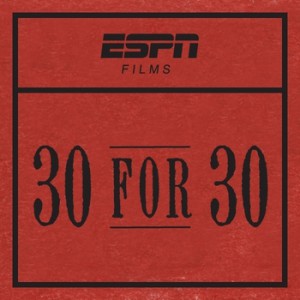Everyone does an “Awards Prediction piece.” This post for me is kind of a running diary throughout the season, with the final predictions written at season’s end but then not published until after the WS ends/Awards season starts.
A few awards have already been given out, ones that I don’t necessarily try to predict anymore:
- Fielding Bible Awards: not an official award but certainly a better way of evaluating defenders than the Gold Gloves (though, to be fair, they’re getting much much better at identifying the true best defenders year in, year out). No Nats awarded.
- Gold Glove Finalists: announced with 3 finalists for each award; Bryce Harper and Wilson Ramos named as finalists but neither will win.
- Hank Aaron awards for “Most Outstanding Offensive Player” in each league: Bryce Harper and Josh Donaldson, who not surprisingly is who I chose for my MVP predictions. I kinda wish this was a more prevalent award than the constant arguing we have about MVP.
- Relievers of the Year: formerly known as the “Fireman’s reliever awards” and now named for legendary relievers Mariano Rivera/Trevor Hoffman: won this year by Andrew Miller of the Yankees, Mark Melancon of the Pirates.
- Sporting News Executive of the Year: Toronto’s Alex Anthopoulis, who announced he was stepping down the same day he got the award.
- A whole slew of other Sporting News annual awards: google “sporting news baseball awards 2015” and you can see players of the year, pitcher of the year, post-season all-star teams, manager of the year, etc.
I put all these dates and links plus a whole lot more into my “off-season” calendar, which will publish soon now that the season is officially over.
(random self promotion related to the Sporting News: they recently published one of my quora.com “answers” titled “Are there Any cities that should have an MLB team,” an answer that I wrote referencing back to this blog for previously published/researched information).
My Final Predictions:
- NL MVP: Bryce Harper
- NL Cy Young: Jake Arrieta
- NL Rookie: Kris Bryant
- NL Manager: Terry Collins
- NL Comeback: Matt Harvey
- AL MVP: Josh Donaldson
- AL Cy Young: Dallas Keuchel
- AL Rookie: Carlos Correa
- AL Manager: Jeff Bannister
- AL Comeback: Prince Fielder
These are not always who I think *deserve* the awards necessarily, just how I think the voters will vote. There are some really close races. Here’s my thoughts:
- NL MVP: Bryce Harper wins for three main reasons: 1) his season is one of the best of the last 50 years. 2) there’s no obvious candidate on any of the division winning teams (no sorry, Yoenis Cespedes doesn’t count) and 3) Even though the Nats didn’t win the division, they were in the race nearly the entire season. No excuses here. You might see some non-Harper votes b/c some middle aged fat slob of a homer writer has some misrepresented axe to grind but he should win easily.
- NL Cy Young: Jake Arrieta: I can’t believe I’ve selected Arrieta over Greinke, but Arrieta’s 2nd half will, again, “win the narrative.” Kershaw has been unbelievable too (and my fantasy team in the championship is proof), so really you can’t go wrong with these guys in any order. I think it goes Arrietta, Greinke, Kershaw. Side note; so, is the Baltimore pitching coaching staff the most incompetent in the league or what? How does Arrieta go from being a 6ERA starter in Baltimore to a guy who is posting a sub 2.00 ERA in one of the best hitter’s parks in the league?
- NL Rookie: Kris Bryant: for a while I thought this was Joc Pederson‘s to lose … but Bryant kept hitting and Pederson sat. Wow are the Astros kicking themselves for drafting Mark Appel over Bryant or what??
- NL Manager: Terry Collins: There’s no team in the NL in a more surprising position than the Mets, so Collins wins the award that our own Matt Williams so richly “earned” last year. I wouldn’t be surprised though to see Joe Maddon get this given how great the Cubs were.
- NL Comeback Player of the year has to be Matt Harvey; there’s nobody else really close in the NL.
- AL MVP: Josh Donaldson: There’s just no reason Mike Trout shouldn’t win this award … except that voters are a fickle bunch and fall for the story. Donaldson is a good story, playing on a good story of a team in Toronto. He wins.
- AL Cy Young: Dallas Keuchel: He was the best in the first half, the ASG starter, and no there’s no reason not to think he finishes off the season. In fantasy he was like a 15th round pick and he’s a top-10 producer. Amazing.
- AL Rookie: Carlos Correa: If you want to argue that Francisco Lindor deserves this, I wouldn’t disagree. I’m guessing Correa has the name power with the voters though and wins out. Lindor has a much better average and is a superior defender, but Correa has 20+ homers, a benchmark number that will get him the votes.
- AL Manager: Jeff Bannister: Even though Toronto is a surprise team, getting the talent handed to you like that is not the mark of a champion manager. What is going on in Texas is nothing short of amazing. At the beginning of the season the had an *entire rotation* on the D/L: Darvish, Harrison, Perez, Scheppers and Holland. Scheppers may not have stayed there very long, but they looked like a 90-loss team, not a divisional winner over the likes of LA and Houston.
- AL Comeback player of the year goes to Prince Fielder for returning strongly from his neck injury. If Alex Rodriguez had missed a year due to injury instead of litigation, he would likely be the winner. By the way; how good was Alex Rodriguez doing color work for Fox Sports at the World Series? He was damn impressive to me, great analysis, well spoken, well-dressed of course … and could not have provided more contrast to Pete Rose if they had found those two guys out of central casting.
So, how did the major awards evolve over the course of the season? By my sense, the awards kind of went like this from April to September:
- NL MVP: Stanton to Harper, maybe Goldschmidt, no definitely Harper, narrative Cespedes but has to be Harper. Nobody else makes sense to take it away from him on narrative.
- NL Cy Young: Scherzer early, definitely Scherzer, maybe Cole, suddenly Greinke in the lead, Kershaw coming on fast late but Arrieta’s 2nd halve clinches it.
- NL Rookie: Bryant and Pederson early, Pederson stretching a lead … but then Pederson gets benched while Bryant continues to play. Some talk about Duffy, but still Bryant. Too many homers.
- AL MVP: Trout to Cabrera, back to Trout, then Donaldson takes over despite Trout’s phenomenal season.
- AL Cy Young: Hernandez early, Keuchel strong mid season, Grey fading, Sale making a name but still Keuchel despite Price’s excellent season.
- AL Rookie: Travis/Souza early, Burns making a name, but Correa is the leader most of the season, Lindor making noise late, Correa holds on.
As with last year’s version of this post, instead of printing links to writers early and mid-season predictions, I’ll just throw those links into the monthly reviews for context. This post is more like a season-long diary of the evolution of these awards; the sections were written in each month as the season progressed.
BaseballMusings maintains a Cy Young tracker stat, which is useful to identify candidates but not really a predictor.
April:
Here’s some early candidates out to fast starts.
Opinions this month: Symborski‘s ZIPS predictors after one month.
- MVP candidates: Trout/Cabrera again in the AL. Adrian Gonzalez, Giancarlo Stanton and Paul Goldschmidt in the NL.
- Cy Young candidates: Felix Hernandez in the AL, Kershaw and Scherzer in the NL.
- Rookie of the year candidates: Devon Travis and Steven Souza in the AL, Kris Bryant and Joc Pederson in the NL.
May:
Harper NL Player of the month, after getting 2 straight player of the week awards. Scherzer wins NL Pitcher of the month.
- MVP candidates: Trout stretching lead in AL, Jason Kipnis and Nelson Cruz also high in bWAR. Bryce Harper has stretched a massive WAR lead in the NL, Goldschmidt #2. Anthony Rizzo entering the discussion.
- Cy Young candidates: Dallas Keuchel and Sonny Gray in the AL, Max Scherzer really standing alone in the NL; closest WAR pitcher in the NL is Aaron Harang and he isn’t likely to keep the pace.
- Rookie of the year candidates: Still Travis and Souza in the AL, Kris Bryant and Joc Pederson in the NL are both explosive players and will be hard to catch.
All Star Break
- MVP candidates: Probably still Trout and Harper. Goldschmidt is nearly as good but Harper has the narrative.
- Cy Young candidates: Dallas Keuchel and Zack Greinke were the All Star starters and may be the leading candidates. Scherzer needs to get some run support; he’s barely above .500.
- Rookie of the year candidates: Former Nat Billy Burns is in the bWAR lead, but Carlos Correa likely gets the nod. In the NL, Bryant/Pederson have a commanding lead but Matt Duffy starting to put his name out there, and if the Cubs would just let Kyle Schwarber stay in the majors he might hit his way to the title.
Mid August
- MVP candidates: Trout has competition in the form of Josh Donaldson in the AL. Nobody’s close to Harper in the NL, still.
- Cy Young candidates: In the NL, Scherzer’s star has faded while LA’s two aces have each had a significant scoreless innings streak and could finish 1-2. Also in the NL; deserving candidates Jacob deGrom, Jake Arrietta and Gerrit Cole. In the AL, it still looks like a dogfight between Gray and Keuchel. But David Price is coming on strong post-trade and Chris Archer should get some top-5 votes.
- Rookie of the year candidates: Its the year of the rookie; never before have we seen so many high-impact rookies in the league at once. The AL seems set for Carlos Correa, with guys like Roberto Osuna, Andrew Heaney and Lance McCullers chasing him. The NL has a number of candidates. Bryant and Pederson have gotten the ink, but guys like Matt Duffy, Jung Ho Kang, Noah Snydergaard and Randal Grichuk are also worthy players. Taylor Jungmann, Kyle Schwarber and even Joe Ross are also rans in the race thanks to later callups. Bryant may win thanks to name recognition, but in other years any of these guys would have been candidates.
- Managers of the Year: we’re 100 games into the season, early enough to see some trends in the “Award-given-to-the-manager for his team unexpectedly overachieving the most in 2015” award. In the AL, clearly Houston is the surprise team and in the NL the Mets are the surprise team, so we’ll go with A.J. Hinch and Terry Collins.
- Comeback Players of the Year: Early candidates include Brett Anderson, Jeff Francoeur, Danny Espinosa and perhaps Matt Harvey. In the AL, I think it has to be Alex Rodriguez or perhaps Prince Fielder. Perhaps Chris Davis comes into the mix too.
September
- MVP candidates: In the AL: Donaldson has overtaken Trout thanks to a huge end-of-season push and Trout’s injury. In the NL, the Nats downturn may have opened up the door for both Anthony Rizzo and Andrew McCutchen. That is if we listen to “narrative” about how teams need to be playing meaningful games. Of course that being said, the Nats are playing very meaningful games; they’re trying to chase down a divisional leader so maybe the narrative still works for Harper. But not after a home sweep, when NY beat writers start beating the drum for Cespedes .. .which would be ridiculous since he only played a couple of months in the NL.
- Cy Young candidates: In the AL, it probably comes down to Keuchel and Sale, with Price in the mix too thanks to his sterling season for Toronto post-trade. In the NL: Arrietta has had the greatest 2nd half in baseball history; can he overtake Greinke?
- Rookie of the year candidates: In the AL: Francisco Lindor making some noise but its still Correa. In the NL, Pederson has gotten benched so it looks like Bryant is the leader, despite Duffy’s better season by WAR.
- Managers of the Year: at this point the “surprise” teams are the Mets and suddenly the Rangers. I’ll go with their managers Collins and Bannister. Some in the NL think Maddon and the Cubs are really the surprise team and they’re kind of right … but I maintain the Mets are even more so.
- Comeback Players of the Year: I’ll go with Harvey in the NL, Fielder in the AL; nobody’s giving A-Rod an award.
